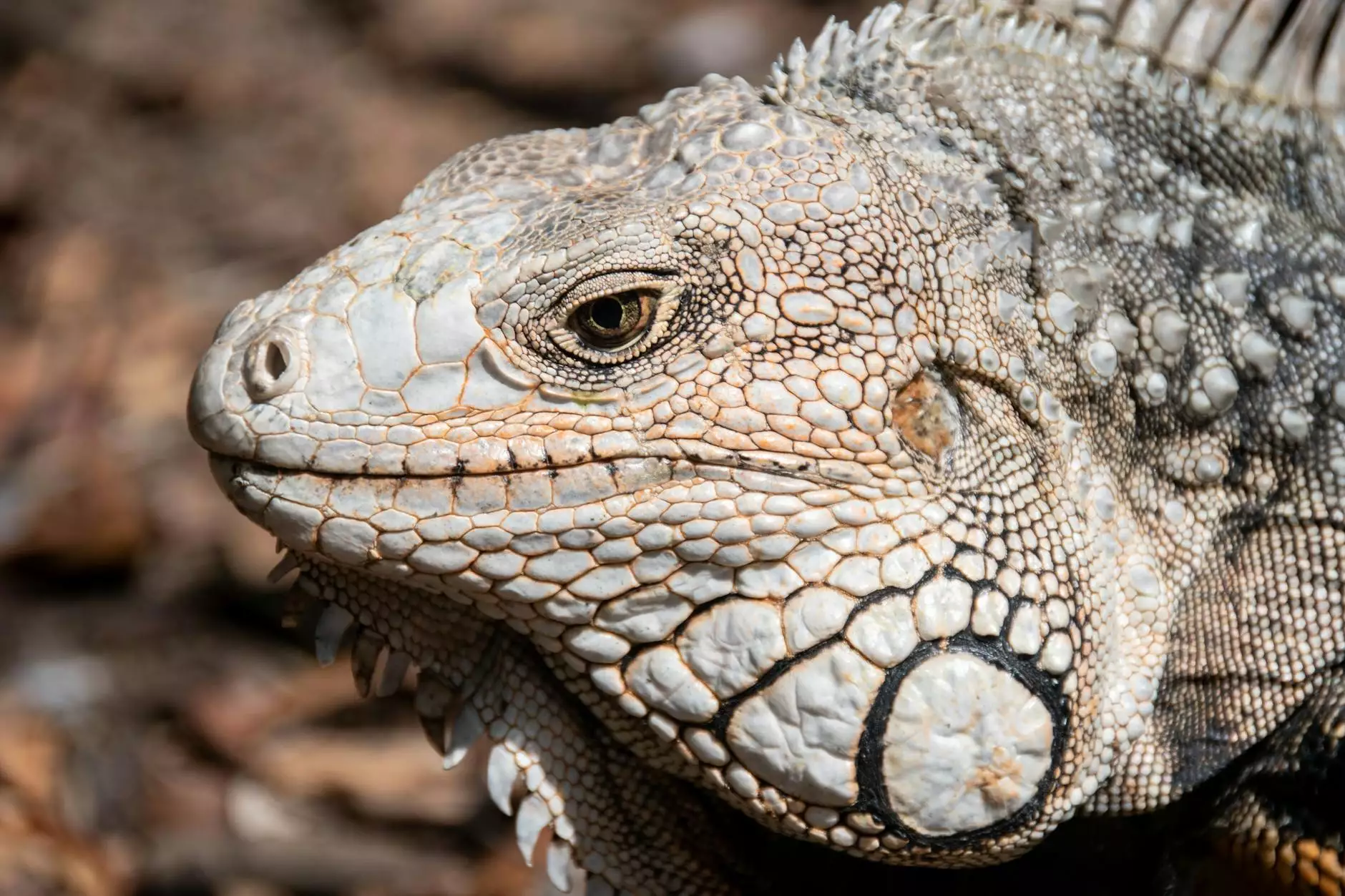Discover the Fascinating World of Pet Geckos

Pet geckos are becoming increasingly popular as exotic pets, and for good reason. These charming reptiles are not only visually stunning but also come with a variety of traits that make them ideal companions for both new and experienced pet owners. In this comprehensive guide, we will dive into the world of pet geckos, offering insights on care, breeds, habitats, and why they could be the perfect addition to your family.
What Makes Pet Geckos Special?
Geckos are unique creatures known for their vibrant colors, fascinating behaviors, and adaptability. Their special characteristics set them apart from other reptiles and pets. Here’s a quick overview:
- Diverse Species: There are more than 1,500 species of geckos, each showcasing unique appearances and personality traits.
- If It Stealthy Moves: Geckos are renowned for their ability to climb, allowing them to navigate various environments with ease.
- Low Maintenance: Compared to traditional pets like dogs or cats, geckos require less space and can be easy to care for.
- Interactive Behavior: Many gecko species display charming behaviors that can entertain and engage their owners.
Choosing the Right Pet Gecko for You
Before diving into the pet gecko ownership experience, it's vital to choose the right species that fits your lifestyle. Here are some popular gecko breeds to consider:
1. Leopard Gecko
Leopard geckos are one of the most popular pet geckos due to their docile nature and ease of care. They are known for their distinctive yellow and black spotted patterns and can live up to 20 years when properly cared for.
2. Crested Gecko
With their frilly crests and wide range of color variations, crested geckos have become a favorite among reptile enthusiasts. They are easy to handle and can thrive in various living conditions.
3. Fat-tailed Gecko
The fat-tailed gecko is similar to the leopard gecko but is distinguished by its stout body and smooth skin. They are generally friendly and can be a great choice for beginners.
4. Gargoyle Gecko
Known for their unique appearance and textured skin, gargoyle geckos are a relatively new addition to the pet reptile market. They are more arboreal and enjoy climbing in their habitat.
Setting Up a Habitat for Your Pet Gecko
Creating the right environment for your pet gecko is crucial for its health and wellbeing. Here are essential elements to include in your gecko's habitat:
1. Enclosure Size
The size of the enclosure varies depending on the species. A 20-gallon tank works well for one or two leopard geckos, while larger species may require more space.
2. Temperature and Lighting
Geckos are ectothermic and need proper heating. A temperature gradient with a basking area of about 85-90°F (29-32°C) and a cooler area around 75-80°F (24-27°C) is ideal. Use heat mats or bulbs that replicate natural day/night cycles.
3. Substrate
Select a suitable substrate that allows for easy cleaning and prevents ingestion risks. For leopard geckos, a paper towel or reptile carpet is recommended, while crested geckos can thrive on coconut fiber or soil.
4. Décor and Hiding Spots
Incorporate rocks, logs, and plants to create a stimulating environment. Provide plenty of hiding spots as geckos feel safer with places to retreat.
5. Humidity and Water
Maintaining appropriate humidity levels is vital, especially for species like the crested gecko. Ensure there’s a shallow water dish available for hydration, and mist the enclosure occasionally.
Feeding Your Pet Gecko
A balanced diet is key to your pet gecko’s health. Here’s what you need to know:
1. Live Insects
Most geckos thrive on a diet of live insects such as crickets, dubia roaches, and mealworms. Ensure the insects are of appropriate size to prevent choking hazards.
2. Nutritional Supplements
Regular dusting of insects with a calcium and vitamin D3 supplement is crucial to prevent metabolic bone disease. Look for high-quality supplements designed for reptiles.
3. Variety is Key
Offering a variety of different insects will help keep your gecko interested and healthy. Remember to avoid feeding wild-caught insects due to potential parasites.
Handling and Socializing Your Pet Gecko
Proper handling and socialization will ensure your gecko remains calm and friendly. Here are some tips:
1. Start Slow
When first bringing your gecko home, allow it to acclimate for at least a week before attempting any handling.
2. Gentle Handling
Use gentle, slow movements when picking up your gecko. Support its body fully and avoid sudden motions that could startle it.
3. Regular Interaction
Regular, short sessions of handling will help your gecko become accustomed to human interaction, making it more comfortable over time.
Breeding Pet Geckos
If you’re interested in breeding, knowing the correct procedures is essential for successful reproduction:
1. Choosing Breeding Pairs
Research and carefully select healthy breeding pairs, considering color morphs, size, and genetics.
2. Breeding Environment
Prepare a breeding enclosure with appropriate nesting areas and maintain optimal conditions for the selected gecko species.
3. Caring for Eggs and Hatchlings
Provide proper incubation for the eggs and create a nurturing habitat for the hatchlings once they emerge.
Common Health Issues in Pet Geckos
Being aware of potential health issues is crucial for maintaining your gecko's health:
1. Metabolic Bone Disease
This is a common condition due to insufficient calcium intake. Ensure proper nutrition and UV lighting to prevent this issue.
2. Respiratory Infections
Signs include lethargy, wheezing, or open-mouth breathing. Addressing environmental factors can help mitigate the risk.
3. Parasites
Both internal and external parasites can affect geckos. Regular vet check-ups and good hygiene practices can minimize these risks.
Conclusion: Why Choose a Pet Gecko?
In conclusion, pet geckos offer an exciting and rewarding pet ownership experience. Their unique characteristics, ease of care, and variety make them highly appealing. Whether you are a seasoned reptile enthusiast or a beginner looking for a unique companion, there is a gecko species that fits your lifestyle.
At eu-exoticreptiles.com, we provide a wealth of resources and expert advice on selecting, caring, and nurturing your gecko. Dive into the world of pet geckos, and discover the joy these unique creatures can bring to your life.
Frequently Asked Questions (FAQs)
- What is the lifespan of a pet gecko? - Depending on the species, geckos can live anywhere from 10 to 30 years.
- Do pet geckos need special lighting? - Yes, UVB lighting is beneficial for most species to ensure proper metabolic function.
- Can geckos be housed together? - Some species can tolerate cohabitation, but it’s essential to research first to prevent territorial disputes.
Resources
For further insights and detailed care guides, consider visiting reputable reptile care websites and forums. Engage with the community of gecko enthusiasts to share experiences and tips that lead to a successful pet ownership journey.









